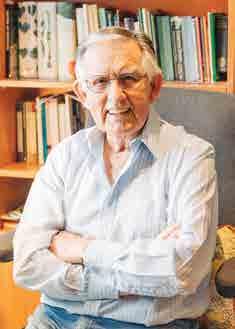Ticket to Australia Were you born in Ireland? Do you remember how you felt the day you first held that ticket to Australia in your hand? Excited? Elated? Nervous? Did you understand deep inside that you had now truly committed to a major transition in your life? In 1861 Johanna (Judy) Dwyer of Donaskeagh, Co Tipperary, found herself at that point of transition, too. In this month’s story, Judy’s Australian great-great-great-granddaughter Christine Timoney, committee member of the Irish Special Interest Group at Family History WA, peels away 160 years to put herself inside the head of her ancestor contemplating the journey ahead and reflecting on the events that led to this moment in time. All the people and their life events mentioned in this story are real, pieced together from documents discovered through the kinds of research that members of Family History WA routinely undertake both online and in FHWA’s library and research centre in Bayswater. Only the words that attempt to capture Judy Dwyer’s thoughts are invented. My name is on the ticket, or so they say. Six of us, in fact, and all our names on the ticket. But I ask you, how can I ever leave? Two weeks from now, I must carry my last half-burnt sod of turf next door to John Halloran’s hearth and set it down in his fire. Until one of us returns to reclaim it, the custom goes, but I doubt you’ll see wisps of smoke rising from my chimney ever again. I hear Australia is far away, and to tell you the truth I cannot believe I’m going there, ticket or no ticket. Sure, it’s so far away that I receive only two letters a year from my Mary or her brothers, and a steamship carrying hundreds of passengers takes nearly four months to reach there, if it arrives at all. Oh, I’ve heard the stories. Almost every night I see in my dreams those four hundred souls crying out for mercy as the Austria burnt in mid-ocean not long ago. Wasn’t it a miracle that my three 68 | THE IRISH SCENE
ever made it safely to Australia? As for me, my name may be on the ticket, but try as I might I cannot picture myself on that boat. Surely I’m to be buried in Donaskeagh graveyard, beneath the jagged stone that marks where my people lie - not in a distant land, or worse, at sea! How did it come to this? ‘Tis well I remember when these stone walls echoed with chatter and singing as we gathered around the fire of a winter’s evening. In the daytime, himself, God rest his soul, all hunched up there in the corner, measuring and bending the wood to build buckets, barrels and butter churns by the dozen. John and Patrick were only boys, Patrick always watching his father, asking questions, wanting to help. Now he has his own coopering shop in Queensland, in a town called Ipswich, and I dare to hope my boy’s doing well for himself there, staying off the drink and
out of fights. How we wished he’d been here to fill the orders that kept coming in long after his father was too weak to rise from his bed. And John, such a tall lad, apprentice to that stonemason and already producing handsome crosses for such as can afford them. But John was already in prison when we buried Winny on Christmas Eve, and there was no fine headstone for his little sister. I blame the Peelers* that my boys were torn from me, banished for ever to Australia. How did we survive, our hearts broken, no money coming in from their work and their father in jail for a whole year, too? He was only protecting his sons, and they fighting for a shred of fairness, the right of every Irishman to hold onto enough of his meagre wages to feed his family and pay those crushing rents. Little Ellen and I toiled in the outside patch until our backs ached, just to grow enough food for ourselves and baby Mary. By the grace of God, Ellen and Mary survived and now have families of their own. I knew trouble would come of Mary’s infatuation with that Peeler constable – a Dalton from Wicklow, so he was – but their Patrick was a dear little baby. It wasn’t the child’s fault his father was fond of the drink. Did the man really think he could keep his marriage a secret from the sergeant while he lived as a single man at the barracks and stole nights with Mary and the baby four doors away at our house?























